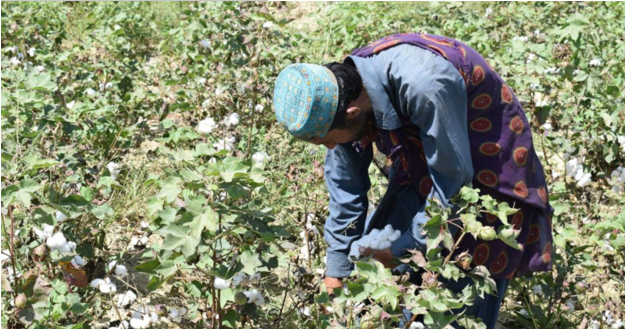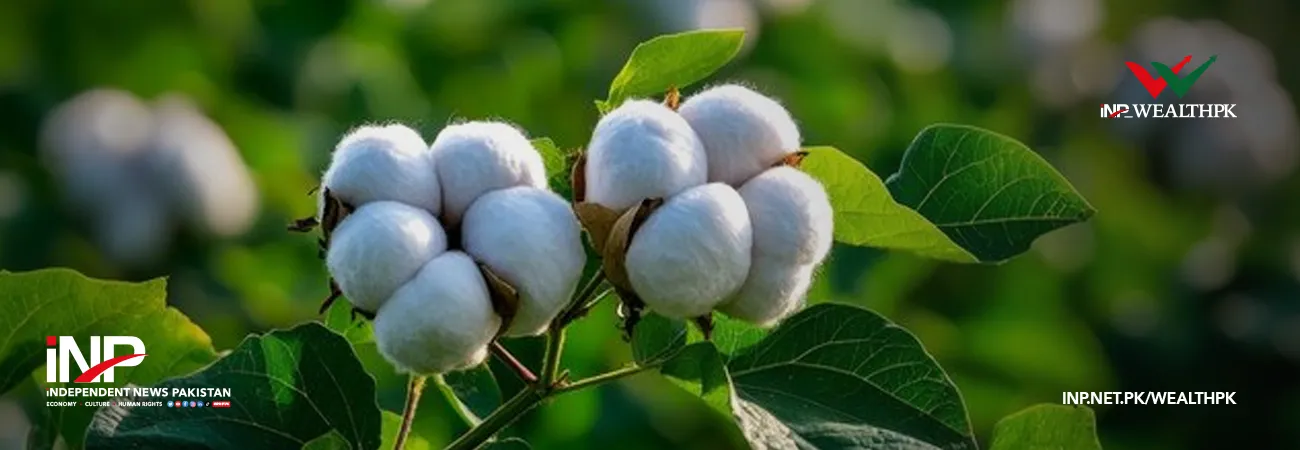INP-WealthPk
Arooj Zulfiqar
In a significant move towards sustainable agriculture, Balochistan is set to shift its focus to organic cotton farming, a decision that promises substantial environmental and economic benefits for the region, reports WealthPK.

This initiative aligns with global trends toward eco-friendly farming and could position Balochistan as a key player in the organic cotton market. “Balochistan is the largest province in Pakistan, comprising 44% of its land area, and has a significant agricultural sector. It has vast arable lands, coupled with favourable climate, making it an ideal region for organic cotton cultivation,” said Abdul Rahman Bazai, secretary general of Balochistan Zamindar Action Committee. Speaking to WealthPK, he said: “The shift comes in response to growing concerns over the environmental toll of conventional cotton farming, which relies heavily on synthetic pesticides and fertilizers.
These chemicals deplete soil fertility, pollute water resources, and harm biodiversity. By transitioning to organic methods, Balochistan can reverse these trends, promoting healthier ecosystems and reducing its carbon footprint.” “Additionally, prioritising organic cotton production will reduce reliance on imported cotton, conserve foreign exchange and position Balochistan as a key player in the global organic market,” he noted. “The transition to organic cotton also holds economic promise. With demand for organic textiles on the rise, Balochistan can tap into lucrative global markets, where consumers increasingly prioritise sustainability,” Bazai said.
“Organic cotton commands a premium price in the international market, offering our farmers better profit margins,” he said. “This move will not only uplift the livelihoods of our farmers but also attract foreign direct investment into the province.” “While the benefits are clear, the transition to organic cotton is not without challenges. Farmers will need to adapt to new farming methods and endure an initial decline in yields during the conversion period. Additionally, access to organic-certified seeds and obtaining international certification are hurdles that need addressing,” Bazai emphasised.
“To support this transition, the government of Balochistan needs to establish supply chain linkages, facilitate certification processes and provide financial incentives to farmers. Provision of subsidised organic seeds, holding training workshops, and ensuring access to organic fertilizers are among the measures that can be introduced,” the secretary general of Balochistan Zamindar Action Committee noted. It is to mention here that in a groundbreaking move toward sustainable agriculture, Balochistan has approved its Organic Agriculture Policy 2024, aiming to revolutionise the province’s farming practices.
Under the policy, developed in collaboration with WWF-Pakistan, Balochistan’s Agriculture Extension Department targets 95,000 acres of land and 12,000 farmers, promoting practices aligned with international standards. In 2023-24, 67,067 acres of certified organic cotton was already cultivated across key districts, including Barkhan, Lasbela, Kohlu and Khuzdar, opening doors to high-demand markets in the US and Europe. This transformative initiative is not only expected to boost the provincial economy but also strengthen farmers’ resilience to climate change and enhance food security.
Credit: INP-WealthPk













